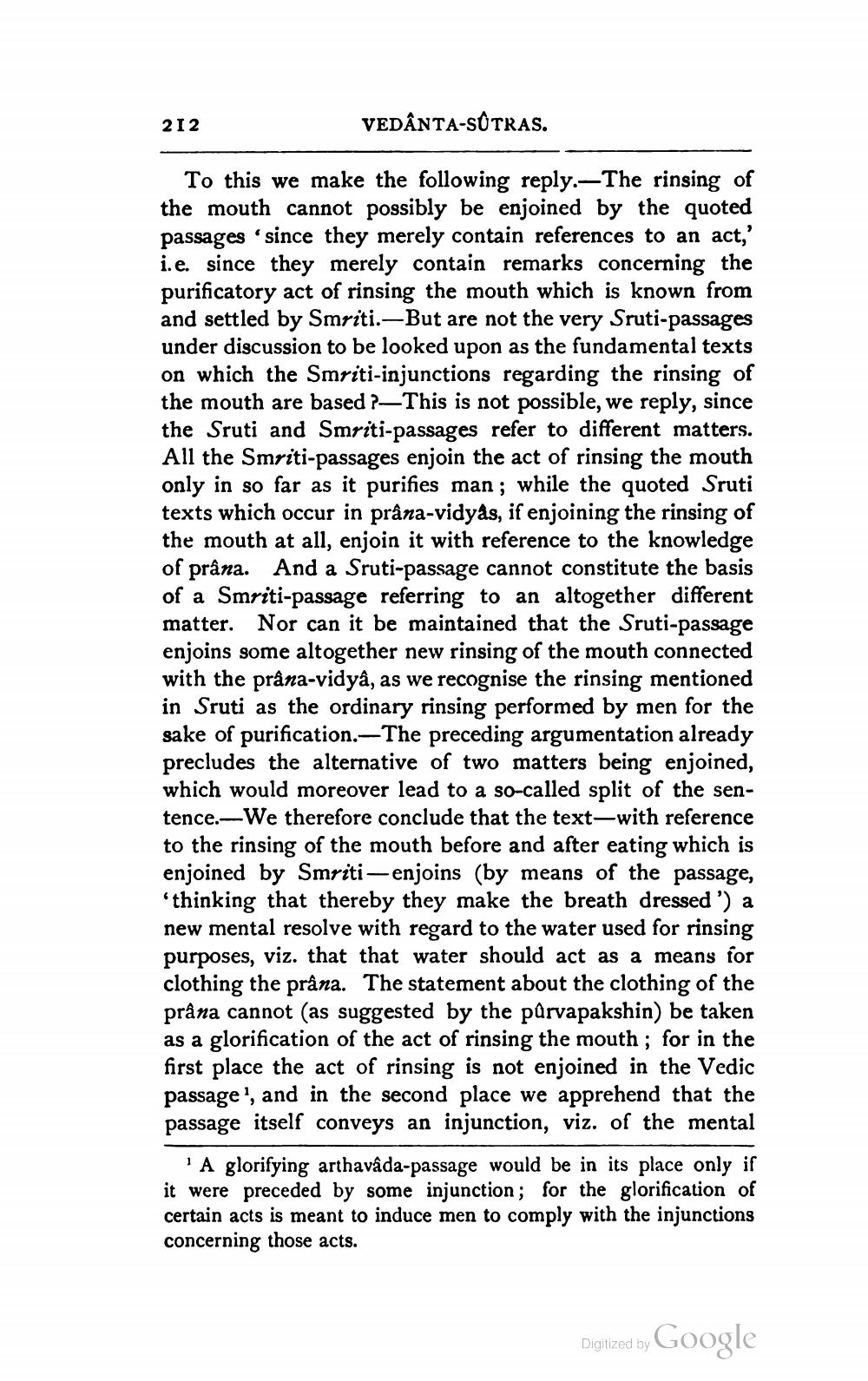________________
212
VEDÂNTA-SOTRAS.
To this we make the following reply.—The rinsing of the mouth cannot possibly be enjoined by the quoted passages since they merely contain references to an act,' i.e. since they merely contain remarks concerning the purificatory act of rinsing the mouth which is known from and settled by Smriti.—But are not the very Sruti-passages under discussion to be looked upon as the fundamental texts on which the Smriti-injunctions regarding the rinsing of the mouth are based ?—This is not possible, we reply, since the Sruti and Smriti-passages refer to different matters. All the Smriti-passages enjoin the act of rinsing the mouth only in so far as it purifies man; while the quoted Sruti texts which occur in prâna-vidyas, if enjoining the rinsing of the mouth at all, enjoin it with reference to the knowledge of prâna. And a Sruti-passage cannot constitute the basis of a Smriti-passage referring to an altogether different matter. Nor can it be maintained that the Sruti-passage enjoins some altogether new rinsing of the mouth connected with the prâna-vidyâ, as we recognise the rinsing mentioned in Sruti as the ordinary rinsing performed by men for the sake of purification.-The preceding argumentation already precludes the alternative of two matters being enjoined, which would moreover lead to a so-called split of the sentence.-We therefore conclude that the text—with reference to the rinsing of the mouth before and after eating which is enjoined by Smriti - enjoins (by means of the passage,
thinking that thereby they make the breath dressed') a new mental resolve with regard to the water used for rinsing purposes, viz. that that water should act as a means for clothing the prâna. The statement about the clothing of the prâna cannot (as suggested by the purvapakshin) be taken as a glorification of the act of rinsing the mouth ; for in the first place the act of rinsing is not enjoined in the Vedic passage', and in the second place we apprehend that the passage itself conveys an injunction, viz. of the mental
A glorifying arthavâda-passage would be in its place only if it were preceded by some injunction; for the glorification of certain acts is meant to induce men to comply with the injunctions concerning those acts.
Digitized by Google




